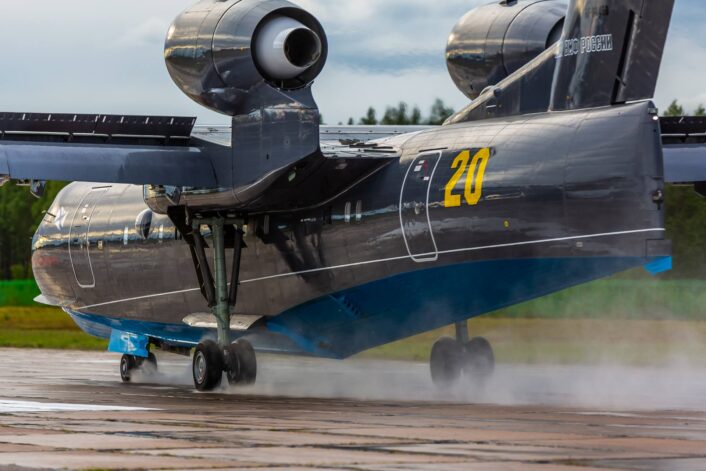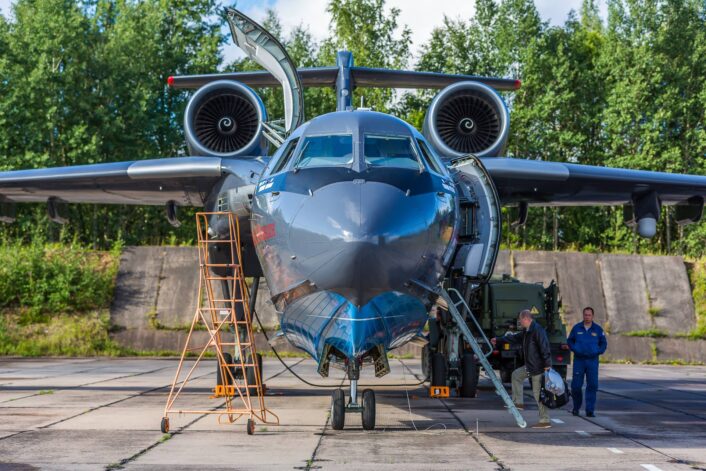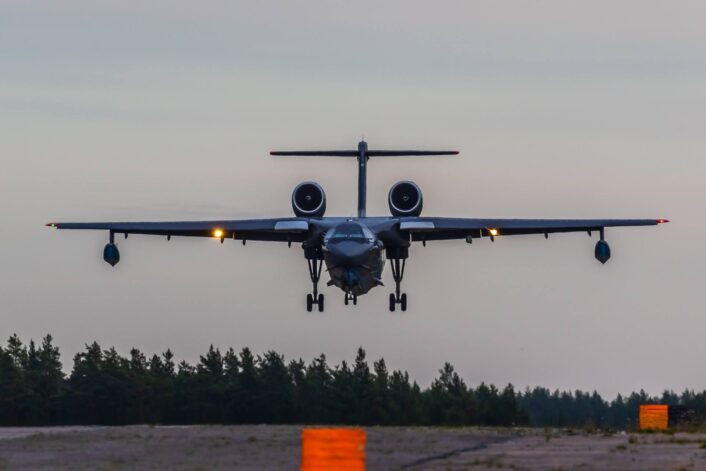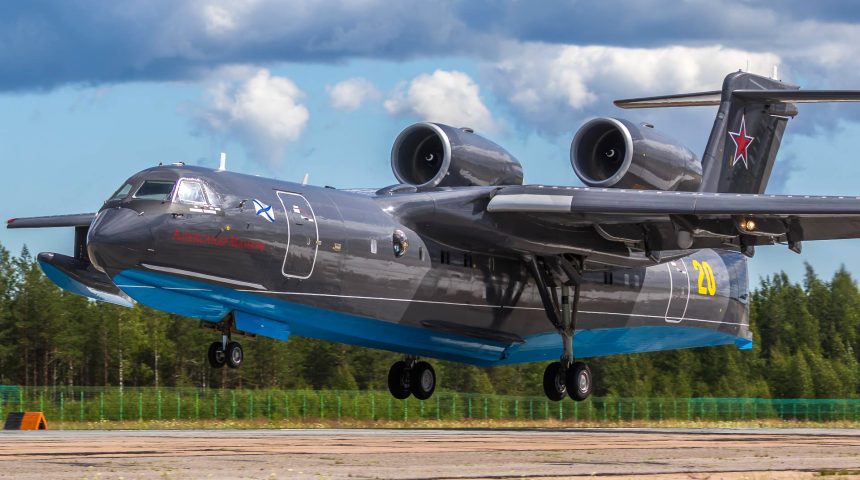The Russian Navy Be-200 was the first one ordered by RF Navy and crashed during a firefighting mission in southeastern Turkey.
A Russian Beriev Be-200 aircraft crashed near near Kahramanmaras, in southeastern Turkey, during a firefighting mission, to fight a fire that broke out during the day as a result of a lightning strike in the forest area on Aug. 14, 2021. According to the reports, five crew members (military, belonging to the Russian Federation) and three Turkish forest inspectors were killed in the incident (some sources say just 7 people were aboard).
Footage showing the aircraft operating in a mountainous region before crashing has already started circulating online, even though the first official Russian MOD statement about the incident claimed the Russian amphibious firefighting aircraft crashed “during landing” near Adana, where the aircraft was stationed.
A Russian Be-200 firefighting plane crashed in #Turkey.
Fate of the crew is unknown. https://t.co/udjByS5wYW pic.twitter.com/xmkAkZMblo
— The Eurasianist (@Russ_Warrior) August 14, 2021
The aircraft involved in the incident should be RF-88450/20 Yellow “Alexander Mamkin”, the first one ordered by the Russian Navy, that participated in the Navy parade last year, where the photos you can find in this article were taken by our contributor Alex Snow. The squadron is believed to be the Center for Combat Use and Retraining of Flight Personnel of the MA of the Russian Navy, from Yeysk, Russia.
In the future, the Russian Navy will operate the Be-200 in the Be-200P variant for anti-submarine warfare but it was initially assigned the firefighting version already operated by EMERCOM, the Ministry of the Russian Federation for Civil Defence, Emergencies and Elimination of Consequences of Natural Disasters.

Russian Be-200s, including those belonging to EMERCOM, regularly deploy abroad to support foreign nations’ firefighting activities. At the beginning of August, the Be-200 deployed to Greece, had flown more than 100 hours in 36 missions, worth 400 water discharges with a total volume of 2,500 tons, in 7 regions of the country, including the islands of Crete and Rhodes.

According to Beriev public data, the basic configuration of the Be-200 amphibious aircraft is intended for fighting the forest fires using the fire extinguishing fluids. While doing this, the aircraft can carry out the following tasks:
- stop and restrain the spread of the big forest fires by developing the protecting strip due to multiple drops on the fire edge;
- extinguishing the small fire and fire which only starts to develop;
- delivery of fire brigades and fire extingushing equipment to the fire region by landing on preselected water area of airfield, and return to the base.
“A particular feature of the Be-200 aircraft, when compared with the other amphibians, is that it has fully pressurized fuselage, which allows to fullfil a lot of missions. The aircraft is fitted with flight/navigation and communication equipment allowing the navigation and flight control at all flight phases in adverse weather conditions at any season, day and night. The interior for the Be-200 amphibious aircraft firefighting configuration is developed by AIM Aviation Fliteform. Passenger and combi configurations are on the list as well. While designing the Be-200 amphibious aircraft, the designers took into account the design experience and test results of the biggest jet amphibian A-40 “Albatross” which set 148 records,” Beriev website reports.










